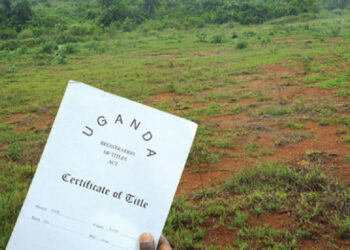KAMPALA – Amid the surging humanitarian needs for 99,000 refugees who have fled to Uganda this year, UNHCR, the UN Refugee Agency, and partners are seeking US$ 68 million to provide life-saving assistance and protection. As refugees from South Sudan and the Democratic Republic of the Congo (DRC) continue to flee violence and seek refuge in Uganda, humanitarian efforts have been stretched to breaking point.
In a revised appeal from April, which covered an initial period of three months, UNHCR and 41 partners – including six UN agencies, 25 international and 10 national non-governmental organizations – are seeking funds to support up to 150,000 refugees by the end of this year.
At the start of 2022, Uganda was already hosting over 1.5 million refugees, making it one of the largest refugee host countries in the world and the largest on the African continent. Uganda is also a global leader in peaceful coexistence and the settlement of refugees with host communities.
Refugees are provided with plots of land for housing and cultivation. Refugees and host communities access the same health facilities, and children attend schools together.
“We are grateful for the continued generosity of Uganda in receiving its neighbors who have been forced to flee, and the international community must, in turn, give financial support to Uganda.” Said Matthew Crentsil, UNHCR’s Representative in Uganda.
“Without additional support, important gains in refugee self-reliance and economic inclusion are now at risk due to severe underfunding.”
By the end of August, UNHCR had received just 38 percent of its 2022 funding needs of USD 343.4 million to respond to the needs of refugees in Uganda, as determined at the start of this year.
The funding gap has strained UNHCR’s capacity to provide critical support in basic humanitarian assistance, child protection, registration, and livelihoods.
Refugees are seeing a sudden reduction in livelihood support, including agricultural inputs critical to using allocated land.
One of the biggest fears is that achievements in reducing under-five and maternal mortality will be rolled back, and infant malnutrition will increase.
Kisoro, for example, in southwest Uganda, has received most arrivals from the DRC. At the Nyakabande transit center, refugees – overwhelmingly women and children – face poor and crowded conditions, which expose them to protection risks.
“Children, especially girls, face a high risk of dropping out of school as UNHCR will be unable to pay teachers’ salaries, and already crowded classrooms will face an additional burden,” said Crentsil.
“There is no more funding to procure soap and hygiene kits for women and girls. This is affecting their health and access to education. Without additional funding, we cannot afford to purchase new stocks of medicines for the health centers.”
UNHCR and partners need urgent contributions to meet the emergency needs of new refugee arrivals in Uganda, upgrade the reception capacity and basic infrastructure of refugee settlements, and prioritize the relocation of refugees to more suitable reception facilities.
Do you have a story in your community or an opinion to share with us: Email us at editorial@watchdoguganda.com













